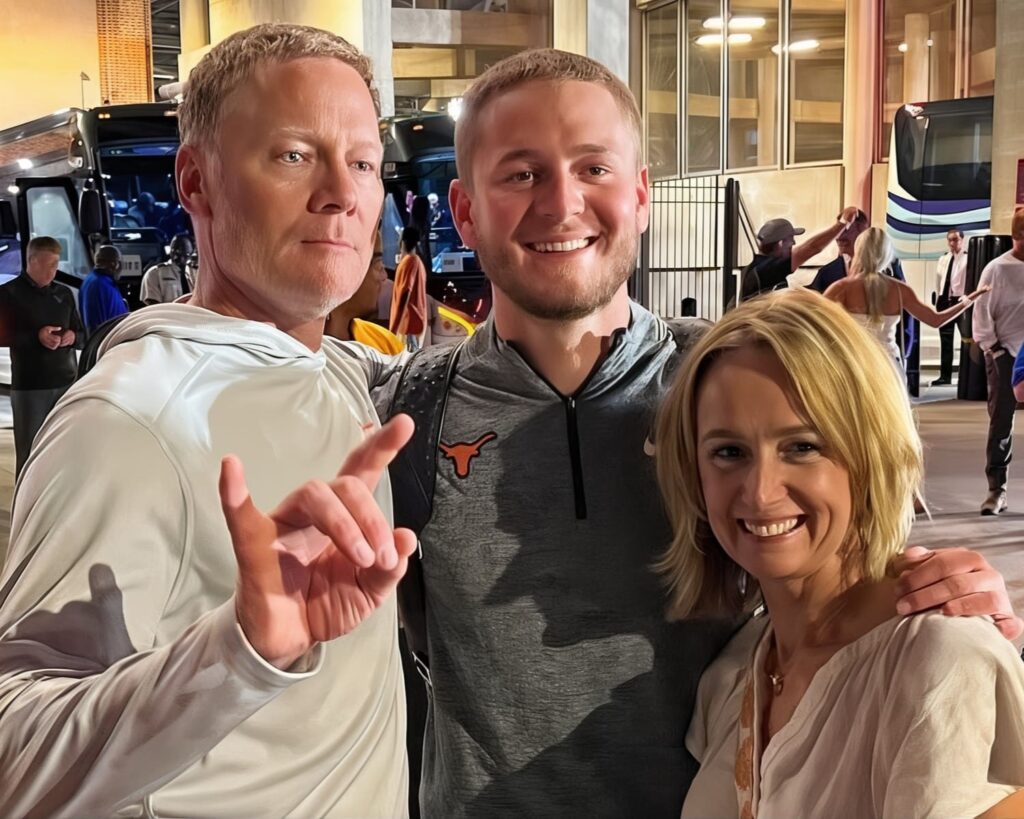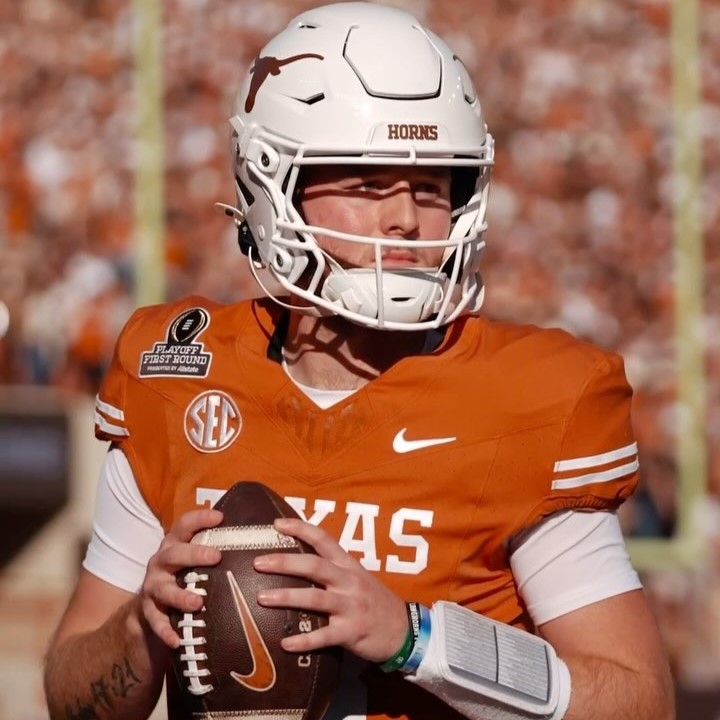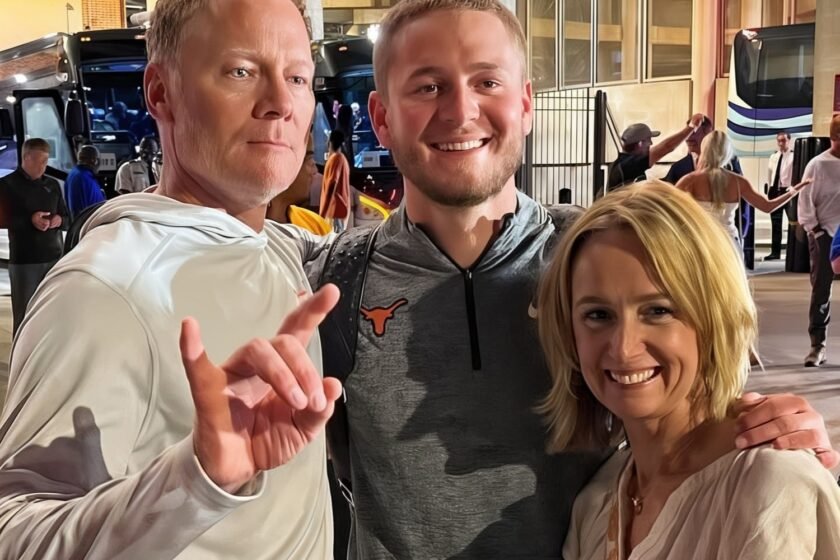
Before he ever took a professional snap, Quinn Ewers found a way to give back to the person who had given him the most.
During his college years as starting quarterback for the Texas Longhorns, Ewers revealed that he used part of his Name, Image and Likeness (NIL) earnings to pay his mother a monthly salary.
For him, it wasn’t about wealth or endorsement deals — it was about recognition.
“I get to pay my mom a salary, which is nice,” he told reporters with a smile. “All the effort and work they put into me growing up — I can’t even begin to describe what that means.”
Repaying Years of Sacrifice

Ewers’ parents had both quit their jobs and relocated across Texas so their son could attend Southlake Carroll High, one of the nation’s most competitive football programs.
Those sacrifices, Ewers said, shaped both his athletic career and his values. “They moved everything for me,” he recalled. “So this is just a small way to give back.”

At the time, Ewers ranked among the highest-valued athletes in college football, with On3 Sports estimating his NIL worth at around $4.5 million.
Rather than flaunt the fortune, he found a way to channel it into something deeply personal — a gesture that turned financial opportunity into familial appreciation.
A Symbol of the NIL Era’s Promise

The NIL era has transformed college sports, allowing athletes to profit from their talent long before the pros — but for Ewers, it also opened the door to repaying the people who made his success possible.
When asked whether his mom’s “salary” might increase if Texas won the College Football Playoff, he laughed and replied, “She’ll have to negotiate.”
His humor aside, the sentiment was sincere: money, in this case, became a vehicle for love, gratitude, and legacy.
Ewers’ story stands as a reminder that even in the business of modern athletics, some victories happen far from the field — in the quiet moments when a son simply says “thank you” the best way he knows how.

